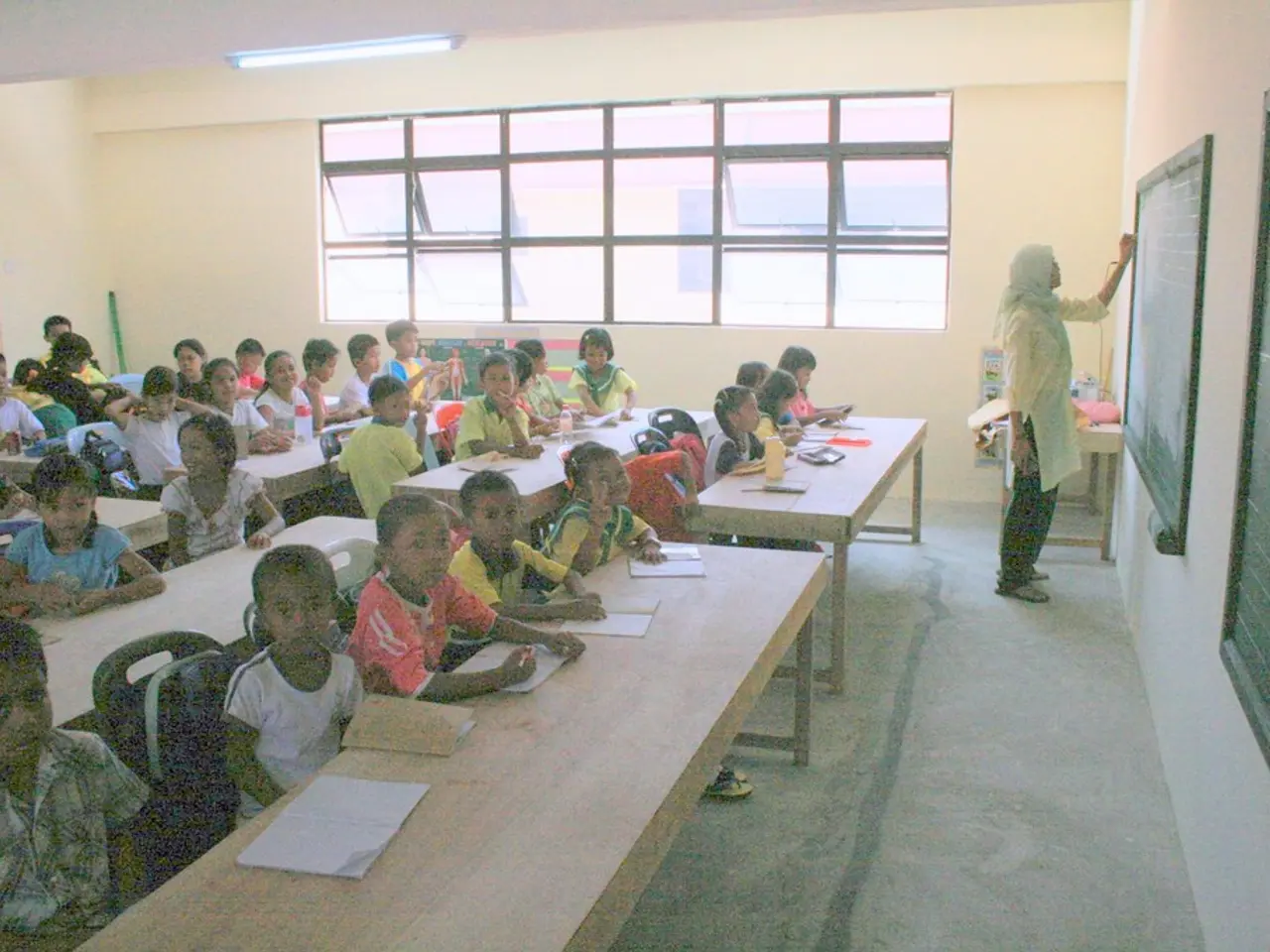The Impact of Artificial Intelligence on Enhancing K-12 Education within the U.S.
In a recent report, the potential uses and impacts of Artificial Intelligence (AI) in K-12 education in the United States have been delved into. The report highlights AI's capacity to offer immediate feedback and answers to questions for students, provide personalised learning experiences, and even help design better interventions for students.
However, the adoption and effectiveness of AI in K-12 education face several challenges. These challenges are categorised into technical, operational, and social obstacles that limit its full potential.
Technical Challenges
Data privacy concerns and cybersecurity uncertainties are significant technical challenges. Many schools and districts lack established guidelines or infrastructure to safely integrate AI, and federal leadership on K-12 cybersecurity is currently in flux. This leaves schools concerned about protecting sensitive student data and ensuring safe technology use.
Additionally, student perceptions and trust in AI tools influence adoption. If students feel AI is unnecessary, hard to use, or untrustworthy, usage drops.
Operational Challenges
Operational challenges relate to the readiness of schools and educators. Only about 35% of educational institutions have official AI usage policies, and many educators are still learning how to responsibly integrate AI in teaching. Professional development for teachers on AI literacy and classroom application is uneven but essential.
The technical infrastructure, administrative support, and clear federal or state guidance are often inadequate or inconsistent, which constrains widespread and equitable AI use. Funding cycles, pilot programs, and state-by-state disparities also create operational hurdles to consistent implementation.
Social Challenges
Social challenges are significant and multifaceted. There is concern about AI fostering over-reliance by students, potentially undermining critical thinking and independent problem-solving skills. Research shows students highly dependent on AI score lower in problem-solving tasks and may miss the intellectual struggle crucial for conceptual learning.
There are worries about increased screen time, diminished adult-child interaction, and emotional impacts such as students forming emotional attachments to AI rather than humans. Equity is another concern: uneven access to AI tools risks widening achievement gaps.
The cultural acceptance of AI-based learning varies among families and educators who value low-tech or more traditional child-led learning environments.
In summary, privacy/security gaps, lack of comprehensive policies, insufficient professional development, and social risks like dependency and equity gaps represent the core barriers limiting AI adoption and effectiveness in U.S. K-12 education. Addressing these requires responsible use strategies that preserve human judgment and empathy while ensuring equitable, developmentally appropriate implementation.
The report also touches upon AI's ability to monitor the student body in K-12 education with the help of predictive analytics. Furthermore, it discusses AI's potential to reduce burnout for teachers in K-12 education. However, these aspects of AI's role in education are also fraught with challenges and require careful consideration to ensure they are implemented in a way that benefits students and educators alike.
- The report suggests that AI can provide immediate feedback and answers to questions for students, offering a personalized learning experience, but data privacy concerns and cybersecurity uncertainties are significant technical challenges that need to be addressed.
- Operational challenges in the adoption of AI in K-12 education include the lack of official AI usage policies in schools, the need for professional development for teachers on AI literacy and classroom application, and inadequate infrastructure, administrative support, and guidance.
- Social challenges related to AI's role in education include concerns about over-reliance on AI by students, potentially undermining critical thinking and independent problem-solving skills, increased screen time, diminished adult-child interaction, emotional impacts, and equity gaps due to uneven access to AI tools.
- The report also discusses the potential of AI to monitor the student body in K-12 education using predictive analytics, but this aspect of AI's role requires careful consideration to ensure it benefits students and educators without violating privacy rights or creating biases.
- In the field of education-and-self-development, online-education, and learning, AI has the potential to reduce teacher burnout, but addressing the technical, operational, and social challenges associated with AI is essential to ensure its effective and responsible implementation.




